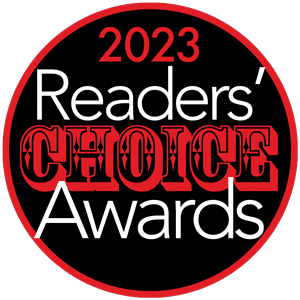Dallas, Texas, Patent Attorneys
Our patent attorneys prepare and file patent applications with the USPTO, enforce patents, and provide patent licensing and management services.
PATENT PROTECTION AND PROSECUTION ATTORNEYS
We are more than just attorneys—we are patent attorneys. At Wilson Legal Group, we have a strong primary focus on patents and trademarks. We assist clients in protecting, selling, licensing, or litigating their intellectual property to extract the tangible business value from their innovations. Our patent and IP lawyers advise clients on patent law, patent prosecution, and patent litigation. We handle all types of intellectual property matters, including patent portfolio management. Whether you are looking to apply for a new patent, defend an existing one, or simply organize your patent licensing portfolio, our skilled patent attorneys can help guide you through the process. For an overview of the patenting process, view The Patent Process Life Cycle.
Patent lawyers are attorneys licensed with the United States Patent & Trademark Office who work in the specialty field of law governing intellectual property. Patent lawyers represent inventors during the patent application process and can also function as litigators to protect their clients' inventions. Applying for a patent is often a complicated process that requires a trained lawyer who understands the patenting process and the rules associated with prosecuting inventions. Our Dallas patent attorneys specialize in the area of law protecting the property rights of inventors. We work closely with clients to understand and protect their innovations.
Why Do You Need a Patent?
A patent will prevent another from practicing your invention, and provides you the exclusive control over how to make, use and offer to sell/license your invention. It is a valuable piece of property. A patentable invention can include products, software, methods, processes, and more. A patent can further deter others from entering a market or competing with you, and from the moment of filing, your invention is "patent pending" at that time even if never ultimately receive a final patent grant.
For more information on the preparing patents, see our Sample Patent Invention Disclosure Form.
Wilson Legal Group is an intellectual property law firm based in Dallas, Texas. We provide expert patent protection to individuals, local, national, and international clients ranging from small businesses to Fortune 500 companies.
Types of Patent Filings, Patent Litigation, and Patent Licensing We Help With
Navigating the intricate world of patents requires specialized legal expertise, especially when it involves protecting intellectual property, resolving disputes, or strategically leveraging patents through licensing. Below are specific types of patent applications, litigation scenarios, and licensing agreements our patent attorneys handle:
Expert Legal Assistance From Patent Attorneys
- Patent Filing: Our Dallas patent attorneys guide inventors through the process of drafting and submitting a patent application. We ensure that the application fulfills all legal requirements, adequately describes the invention, and that the claims effectively cover the invention's novel aspects.
- Patent Prosecution: Beyond initial filing, Our Dallas patent attorneys handle the ongoing process of communicating with patent offices, responding to examiner's rejections or objections, and amending applications accordingly. We work to secure the broadest possible patent protection for an invention.
- Patent Litigation: In cases of alleged patent infringement or when a patent’s validity is challenged, our patent litigators represent clients in court. We provide both defensive and offensive litigation support, dealing with complex legal arguments.
- Patent Licensing: Our patent attorneys negotiate and draft licensing agreements that allow third parties to pay for and use a patented invention. We ensure that these agreements respect the patent holder's rights and are financially advantageous, handling negotiations and contract specifics.
- Patent Strategy and Management: Our patent attorneys advise companies on how to manage their patent portfolios to align with their business goals. This includes strategic filing to cover key technologies and advice on the commercial impact of patenting decisions.
- Due Diligence: The patent attorneys of Wilson Legal Group perform due diligence for mergers, acquisitions, or investment in technology companies, assessing the scope, validity, and enforceability of patents. We identify potential legal risks associated with patent portfolios that could impact business transactions.
- Freedom to Operate Analyses: Before launching a new product or service, our Dallas patent attorneys can conduct freedom to operate (FTO) analyses to determine whether a particular action, like selling a product, may infringe existing patents. Such an analysis is crucial for avoiding costly infringement litigation.
Frequently Asked Questions
What are the different types of patents you can file?
The United States Congress defines the types of inventions that can be protected by patents. There are three main types of patents: utility patents, design patents, and plant patents, and each is described as follows:
Utility Patent: A utility patent is a technical document that teaches the public how to use a new machine, process, or system. A utility patent can be (i) a functional utilitarian device or formula, (ii) a business method or steps to conducting a novel business concept, or (iii) software directed to a novel computer task or function. For instance, a software patent is not only a utility patent but also a specific type of business method patent. Business method patents are the specific methods for conducting a novel business concept. The parts of utility patent applications include the background, specification, claims, and drawings used in describing a new machine, method, or system. For more information on the utility patenting process, see our Overview of the Patenting Process.
Design Patent: A design patent protects an ornamental design on a useful item. Unlike a utility patent, a design patent only includes one claim: "I claim: the ornamental design as shown." The ornamental design protected by a design patent can be the shape of jewelry, the appearance of a beverage container, or the design of a watch. It is the ornamental design that defines the protectable patentable subject matter of a design patent. A design patent does not cover the functionality of the claimed design, or the way it functions or any internal structures. A design patent only protects the ornamental appearance (i.e., "the look") of the patented item.
Plant Patent: Plant patents protect novel kinds of plants produced by cuttings or other nonsexual means.
Overview of provisional patent applications and their importance
A provisional patent application is a document filed with the U.S. Patent and Trademark Office (USPTO) that gives a new invention an early priority date. It is not examined or published by the patent office, and a non-provisional patent application must be filed during the twelve-month period following the provisional filing date. The provisional application still must meet the minimum requirements of being able to disclose the invention to the public (i.e., enable the public to figure out how to make the invention). Once a provisional patent application is filed, the utility invention is said to be "patent pending." A failure to file a formal utility patent within the twelve-month period from provisional patent filing will result in the loss of the early priority date and, in the worst case, any public disclosures done by the inventor during that twelve-month period may not be considered public disclosures to the USPTO and bar patentability (i.e., publications, patents, public uses, and sales which occur more than one year prior to the date of application for a patent in the United States may constitute a bar to a patent). Lastly, design patents cannot be filed as provisional patent applications.
What is a non-provisional utility patent application?
A non-provisional utility patent application is the formal and complete version of a patent application that is ready to be examined by the USPTO. It contains a written description of the invention as well as at least one claim, which enables someone to practice the invention. A non-provisional utility patent application must meet the following requirements:
- Utility Patent Application Transmittal Form or Transmittal Letter: This form accompanies the patent application, summarizing the contents and specifying the type of patent being applied for. It ensures that all parts of the application are correctly identified and processed by the patent office.
- The Application Data Sheet: This is a form that provides bibliographic data, including information about the inventors, ownership, and correspondence details. It organizes and presents critical information needed to process the patent application.
- A Specification, with at least one claim: The specification describes the technical details and the operation of the invention, while the claims define the scope of the patent protection sought. It is the central document in a patent application that legally defines the invention.
- Drawings, if necessary to describe the invention: These are visual representations of the invention, required when they are essential for understanding the functionality or design of the invention. Drawings must clearly illustrate what is claimed in the specification.
- A Declaration or Oath by the Inventor: This is a formal statement by the inventor asserting they are the original inventor of the subject matter detailed in the application. It is a legal declaration of originality and ownership.
- The Fee Transmittal Form: This form accompanies the payment of fees, detailing the calculation and total of fees being paid for the patent application process. It ensures accurate financial processing of the application.
- Payment of the Fees: This involves submitting the necessary fees required for the patent application process. Payment is crucial for the application to be examined and processed by the patent office.
For more information on the utility patent patenting process, see our Overview Of The Patenting Process .
The patent attorneys of Wilson Legal Group assists clients throughout Dallas and the rest of Texas who are facing patent or patent infringement issues. We have helped clients in Dallas, Plano, Allen, Lewisville, Flower Mound, Irving, Denton, McKinney, North Richland Hills, and all cities within Dallas County, Tarrant County, Collin County, and Denton County.
Experienced Patent Lawyers in Dallas, Texas
Why Choose Wilson Whitaker Rynell?
Comprehensive Legal Expertise:
We offer a wide range of legal services including patent litigation, patent licensing, and patent prosecution. Our attorneys are well-versed in handling complex patent issues, providing clients with robust and informed patent legal strategies.
Experienced and Recognized Attorneys:
We have a team of experienced attorneys, including John T. Wilson, Leigh Whitaker, and Jennifer Rynell. These lawyers are recognized for their excellence and dedication, ensuring clients receive top-tier legal representation as voted in Super Lawyers.
Client-Centered Approach:
We are committed to understanding their clients' businesses and objectives. We provided practical, thoughtful solutions tailored to each client's unique needs, aiming to deliver efficient and effective legal services.














